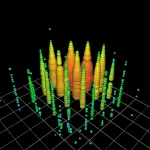Trial compares two gestational diabetes screening methods
Kaiser Permanente researchers conducted a large-scale randomized trial involving nearly 24,000 women and found no difference in health outcomes.
2021-03-11
(Press-News.org) There were no significant differences in health outcomes for pregnant women who were diagnosed with gestational diabetes or their babies using two different clinically recommended screening methods, according to results from a large-scale clinical trial conducted by Kaiser Permanente researchers and published in The New England Journal of Medicine.
Although there is evidence that treating pregnant women for gestational diabetes leads to improved health outcomes for mothers and their infants, there is no scientific consensus on how best to screen for gestational diabetes. Two different approaches are recommended and used in clinical practice in the United States: a 1-step protocol that requires women to fast prior to the test (currently preferred by the American Diabetes Association) and a 2-step approach that does not require fasting for the initial test (currently recommended by the American College of Obstetricians and Gynecologists). This study was the first head-to-head trial comparing maternal and perinatal outcomes of the two methods.
"We know that screening and diagnosing women with gestational diabetes improves outcomes for mothers and babies," said lead author Teresa Hillier, MD, MS, investigator at the Kaiser Permanente Northwest Center for Health Research and Kaiser Permanente Hawaii Center for Integrated Health Care Research. "Our trial was designed to determine whether there were any differences in outcomes between the two approaches. The one-step method diagnoses twice as many women, typically leading to treatment of women with milder gestational diabetes, but we found no evidence that this higher diagnosis rate led to differences in outcomes."
The study involved nearly 24,000 pregnant women from Kaiser Permanente in Hawaii and from the Northwest in Portland, Oregon, all of whom were randomly assigned to the 1-step or the 2-step testing protocol to screen for gestational diabetes as part of their clinical care. This head-to-head study design compared outcomes across the entire population in a "real-world" clinical setting, allowing generalizability to everyday clinical practice. The women were enrolled between May 28, 2014, and December 31, 2017, and data on outcomes were collected between 2014 through 2018. The outcomes evaluated included rates of gestational diabetes diagnosis, large-for-gestational-age infants, gestational hypertension or preeclampsia, primary cesarean section, and a composite measure of several adverse perinatal outcomes that included stillbirth and neonatal death.
The study found:
Among the 94% of women who completed screening, a larger share (92%) of women randomized into the 2-step protocol were adherent than those randomized into the 1-step approach (66%).
There was a significant difference in diagnosis of gestational diabetes; 16.5% of women were diagnosed in the 1-step approach compared to 8.5% in the 2-step protocol.
There were no significant differences between the two gestational diabetes screening approaches in the primary Rates were also similar between groups across a range of secondary and safety outcomes, including preterm birth and admission to neonatal intensive care.
"What this large-scale clinical trial illustrates is that the 2-step screening method appears to be preferred by patients and providers, and had a lower screen-positive rate, and led to outcomes that were not different from the 1-step method," explained Keith Ogasawara, MD, chief perinatologist, Department of Obstetrics and Gynecology with Kaiser Permanente in Hawaii.
INFORMATION:
The study was funded by the Eunice Kennedy Shriver National Institute of Child Health and Human Development.
Other authors on the study include Kathryn Pedula, MS, Hawaii Permanente Medical Group, Honolulu; Kimberly K. Vesco, MD, MPH, Kaiser Permanente Center for Health Research, Portland, Oregon; Caryn E. S. Oshiro, PhD, Kaiser Permanente Center for Integrated Health Care Research, Honolulu; Suzanne Lubarsky, MD, Northwest Permanente, Portland; and Jan Van Marter, MPA, RN, Kaiser Permanente Center for Health Research, Portland.
About Kaiser Permanente
Kaiser Permanente is committed to helping shape the future of health care. We are recognized as one of America's leading health care providers and not-for-profit health plans. Founded in 1945, Kaiser Permanente has a mission to provide high-quality, affordable health care services and to improve the health of our members and the communities we serve. We currently serve 12.4 million members in 8 states and the District of Columbia. Care for members and patients is focused on their total health and guided by their personal Permanente Medical Group physicians, specialists, and team of caregivers. Our expert and caring medical teams are empowered and supported by industry-leading technology advances and tools for health promotion, disease prevention, state-of-the-art care delivery, and world-class chronic disease management. Kaiser Permanente is dedicated to care innovations, clinical research, health education, and the support of community health.
ELSE PRESS RELEASES FROM THIS DATE:
2021-03-10
Boston, MA - People who eat diets with higher amounts of healthy plant-based foods and lower amounts of less-healthy plant-based foods may reduce their risk of stroke compared to people with lower-quality diets, according to a new study led by researchers from Harvard T.H. Chan School of Public Health. They found that healthy plant-based diets--defined as rich in foods such as leafy greens, whole grains, and beans, and including lower levels of foods like refined grains, potatoes, and added sugars--may lower overall stroke risk by up to 10%.
"Our findings have important public health implications, suggesting that future nutrition policies to lower stroke risk should ...
2021-03-10
University of Texas at Dallas chemist Dr. Jie Zheng has spent much of his career investigating gold nanoparticles for their potential impact in the field of nanomedicine. In new research, he and his colleagues show how these nanoparticles could play a key role in a simple blood test to detect acute liver damage earlier than current methods.
The study, published online Feb. 19 in the journal Science Advances, expands on corresponding author Zheng's work, which has previously demonstrated the use of nanoparticles for targeted delivery of cancer drugs and better understanding of kidney disease.
"Our goal is to make it simple for family ...
2021-03-10
One of the most classic algorithmic problems deals with calculating the shortest path between two points. A more complicated variant of the problem is when the route traverses a changing network--whether this be a road network or the internet. For 40 years, an algorithm has been sought to provide an optimal solution to this problem. Now, computer scientist Christian Wulff-Nilsen of the University of Copenhagen and two research colleagues have come up with a recipe.
When heading somewhere new, most of us leave it to computer algorithms to help us find the best route, whether by using a car's GPS, or public transport and map apps on their phone. Still, there are times when a proposed route doesn't quite align with reality. This is because road networks, ...
2021-03-10
A team of pediatricians at the Medical University of South Carolina (MUSC) was the first in the nation to enroll patients with multisystem inflammatory syndrome in children (MIS-C), a rare but life-threatening complication of COVID-19, in a trial of remestemcel-L. This investigational cell therapy, developed and manufactured by Mesoblast, New York, New York, had previously been shown safe and effective for other inflammatory conditions. The MUSC team reports in Pediatrics that the two children enrolled thus far showed significant improvement within 24 hours of remestemcel-L administration.
"While it appears to many people that COVID is no big deal ...
2021-03-10
During the COVID-19 pandemic, people who recognize the connections they share with others are more likely to wear a mask, follow health guidelines and help people, even at a potential cost to themselves, a new University of Washington study shows.
Indeed, an identification with all humanity, as opposed to identification with a geographic area like a country or town, predicts whether someone will engage in "prosocial" behaviors particular to the pandemic, such as donating their own masks to a hospital or coming to the aid of a sick person.
The study, published March 10 in PLOS ONE, is drawn from about 2,500 responses, from more than 80 countries, to an online, international ...
2021-03-10
Images
As far back as the Greek historian Herodotus, a group of people called the Scythians were considered highly mobile warrior nomads.
Scythian-era people lived across Eurasia from about 700 BCE to 200 BCE, and have long been considered highly mobile warriors who ranged widely across the steppe grasslands. Herodotus describes Scythian populations as living in wagons and engaging in raiding and warfare, and this view has persisted throughout history--supported by archeologists' observations of similar styles of horse harnesses, weapons, burial mounds and animal style motifs throughout ...
2021-03-10
A study conducted by researchers at the University of São Paulo in Brazil shows that competition for nutrients and lack of cooperation among bacteria of the species Escherichia coli in the same population and in situations of food scarcity prevent mutants that are better adapted to the environment from flourishing, except those that organize in small groups. The phenomenon masks the emergence of novel bacterial variants, making the mutation rate seem lower than it is in fact.
Mutants constantly emerge and accumulate from one generation to the next. Mutation frequency determines the evolution of a given species. Understanding ...
2021-03-10
The legalization of cannabis and the arrival of nonmedical fentanyl are fundamentally changing drug markets in North America. A large part of these changes relates to the ability to produce large quantities of the drugs at low costs, which has slashed wholesale prices for both drugs and retail prices for cannabis. A new analysis explores the effects of these changes on use. The analysis concludes that sharp declines in production costs for cannabis and opioids could dramatically reduce the price per dose for consumers in ways that alter patterns of use and dependence.
The analysis, by a researcher at Carnegie Mellon University (CMU), is published in the International Journal of Drug Policy.
"Historical analogies suggest that very large ...
2021-03-10
On December 6, 2016, a high-energy particle called an electron antineutrino was hurtling through space at nearly the speed of light. Normally, the ghostly particle would zip right through the Earth as if it weren't even there.
But this particle just so happened to smash into an electron deep inside the South Pole's glacial ice. The collision created a new particle, known as the W- boson. That boson quickly decayed, creating a shower of secondary particles.
The whole thing played out in front of the watchful detectors of a massive telescope buried in the Antarctic ice, the IceCube Neutrino Observatory. This enabled IceCube ...
2021-03-10
MAYWOOD, IL - A recent Loyola Medicine study found that reducing the standard dose of IV-administered ketamine in half is as effective as the larger, standard dose in reducing pain in adults.
Ketamine is known to provide pain relief comparable to opioid medications, which are highly addictive. In the recent study, appearing in the journal Academic Emergency Medicine, researchers studied 98 patients, ages 18 to 59, who presented to the emergency department with acute, moderate to severe pain. The patients were randomized prospectively to receive either 0.15 mg/kg of ketamine (low dose) or 0.30 mg/kg (high dose). Patients ...
LAST 30 PRESS RELEASES:
[Press-News.org] Trial compares two gestational diabetes screening methods
Kaiser Permanente researchers conducted a large-scale randomized trial involving nearly 24,000 women and found no difference in health outcomes.





